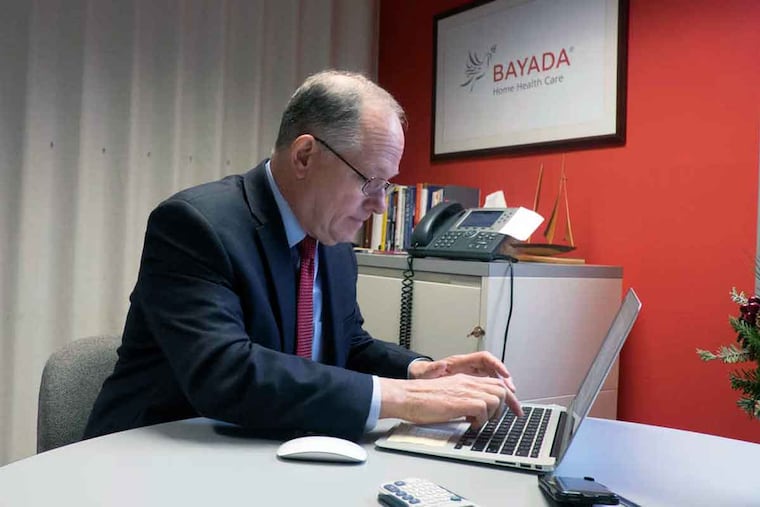Founder to donate Bayada Home Health to charity
J. Mark Baiada could probably sell Bayada Home Health Care, the Moorestown company he founded in 1975, for at least $1 billion, but instead, Baiada and his family have decided to donate it to a charitable foundation, Baiada said Monday.

J. Mark Baiada could probably sell Bayada Home Health Care, the Moorestown company he founded in 1975, for at least $1 billion, but instead, Baiada and his family have decided to donate it to a charitable foundation, Baiada said Monday.
"Nonprofits last longer, and I don't really need the money, so we're going to turn it over to a newly created nonprofit that's all mission-driven," Baiada said. "We're putting mission over money."
Bayada, with $1.1 billion in annual revenue, is the nation's 10th-largest home health agency, according to a report last year by Lexis-Nexis Risk Solutions.
The company employs 23,000 people (including 7,767 in the Philadelphia region) through 310 offices in 22 states, company officials said. It served 150,000 patients last year, including 37,000 in the region.
Its services include home nursing, rehabilitation, therapy, and hospice.
Given its size, Bayada would likely make an attractive takeover target for larger players in the home-care industry, which is consolidating, as ever more care is expected to be delivered at home, but is still highly fragmented.
In recent deals, smaller Bayada competitors have been sold for prices equal to annual revenue or more.
Early last year, Kindred Healthcare Services Inc. bought home-care firm Gentiva health Services Inc. in a deal valued at $1.8 billion, equal to Gentiva's $1.8 billion in revenue.
Baiada has been contemplating for years what to do with the company he founded with $16,000 when he was 27.
He ruled out selling to private equity, going public, and even leaving the company to his five children - all but one of whom is involved in the business. He and his children were too aware of the dire statistics on how few companies make it through multiple generations.
"It's hard to have a hereditary system that produces the competencies required to meet the demands of the public and the organization," Baiada said.
The process of turning Bayada over to a public charitable foundation, which as yet to be created, is expected to take several years. The plan is for the charitable foundation to own 80 percent of the company, with the rest owned by the family and other employees, Baiada said.
That is easier said than done. "I found out that it's hard to give money away, give a company away, without tax consequences," Baiada said. "I just want to give it away for the public interest. We're working that through."
The key is to qualify as a public charity. It's a rare effort not just because it means giving up a potentially huge payday.
"It is unusual because the industries that could do this are narrow: health care, education, news and media," said Suzanne Friday, senior counsel and vice president of legal affairs at the Council on Foundations. "Not every business lends itself to a charitable purpose."
215-854-4651
@InqBrubaker